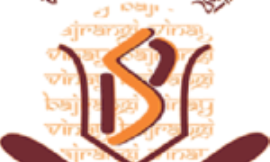Fixed Deposits (FDs) are widely recognised as reliable savings tools in India, offering a fixed interest rate over a predetermined period with low risk. In situations where urgent funds are required, an FD can serve as collateral for a loan, allowing individuals to access needed funds without prematurely closing their deposit. A loan against an FD, such as one available through Bajaj Markets, enables you to secure a loan based on the deposit’s value while continuing to earn interest on the FD.
What is a Loan Against an FD?
A loan against an FD is a secured loan where your FD serves as collateral. Instead of liquidating your fixed deposit prematurely, you can use the FD as security to get a loan. The amount you could borrow is typically a percentage of your FD’s value. This option may be ideal for short-term financial needs, as the interest rate is lower than that of personal loans.
Eligibility Criteria for a Loan Against an FD
While eligibility conditions vary across banks and NBFCs, the general criteria for availing of a loan against an FD remain similar. Here’s a breakdown of the basic eligibility requirements:
Ownership of a Fixed Deposit
To avail of this loan, you must have an FD with the issuing bank or NBFC. Your FD acts as collateral, so only the issuing institution may offer you the loan.
FD Tenure
The FD should have a remaining tenure long enough to cover the loan period. Some institutions may require the FD to be at least a certain number of months into its term before you can avail of a loan.
Minimum Deposit Amount
The value of the FD must meet the bank or NBFC’s minimum deposit requirement for loans. For instance, some financial institutions may set a minimum of ₹1 Lakh in the FD to be eligible for a loan.
Loan Amount
The loan amount is usually a percentage of your FD balance, which could be up to 75%-90%. For instance, if you have an FD of ₹5 Lakhs, you could borrow between ₹3.75 Lakhs and ₹4.5 Lakhs, depending on the issuer’s policies.
Resident Indian
Only resident Indians holding FDs with the bank or NBFC are generally eligible. NRI deposit holders may not qualify for this type of loan in certain cases.
No Defaults on Previous Loans
The bank or NBFC may review your credit history before approving the loan, even though the FD itself acts as collateral.
Pros of a Loan Against an FD
Lower Interest Rates
As this is a secured loan, the interest rate is generally lower compared to personal loans or credit cards. Usually, the rate is about 1%-2% above the interest earned on the FD. For instance, if your FD offers a return of 6% p.a., the loan’s interest rate may range from 7% to 8% p.a.
No Prepayment Charges
Many financial institutions do not levy prepayment penalties if you choose to repay the loan before the tenure ends. This gives you the flexibility to clear your dues without worrying about extra charges.
Preserve Your FD
You don’t have to break your FD to access funds. This allows you to continue earning interest on your FD, while still meeting your financial needs through the loan.
Fast Processing
Since the loan is secured against your FD, the approval process is typically quick and hassle-free. Some lenders may offer approval within hours.
Flexible Loan Amount
You can take a loan up to 90% of the FD value, depending on the lender. This gives you flexibility to borrow according to your immediate financial needs.
Cons of a Loan Against an FD
Loan Limitations
The maximum loan amount depends on the value of your FD. If your FD is small, the loan amount may not be sufficient to meet your financial requirements. For instance, if you have ₹1 Lakh in an FD, the maximum loan you could get would be ₹90,000.
Loss of FD in Case of Default
If the loan is not repaid, the bank or NBFC has the authority to liquidate your FD to recover the outstanding amount. This could lead to a loss of your deposited funds along with any interest you would have earned.
Limited Loan Tenure
The loan tenure is limited to the remaining tenure of your FD. This may not suit individuals looking for longer-term loans, as the repayment schedule could be shorter.
Interest Accumulation
Although the loan has a lower interest rate compared to unsecured loans, you are still required to pay interest. It’s essential to calculate whether the loan will genuinely be a cost-effective solution for your situation.
FDs with Loan Liabilities Cannot Be Prematurely Withdrawn
If you need to liquidate your FD for any reason, you may not be able to do so while the loan is outstanding. This ties up your funds until the loan is repaid in full.
Conclusion
A loan against FD on Bajaj Markets or through banks and NBFCs could be a practical option for individuals seeking quick funds without breaking their fixed deposits. This option allows you to maintain your savings while addressing your short-term financial needs. However, it’s important to carefully consider the pros and cons. While the lower interest rate and flexibility may be beneficial, defaulting on the loan could result in the loss of your FD.
Before opting for a loan against your FD, ensure that it aligns with your financial goals and repayment capabilities. Always review the specific eligibility criteria and terms laid out by the bank or NBFC and calculate the total cost of the loan before committing to it.




